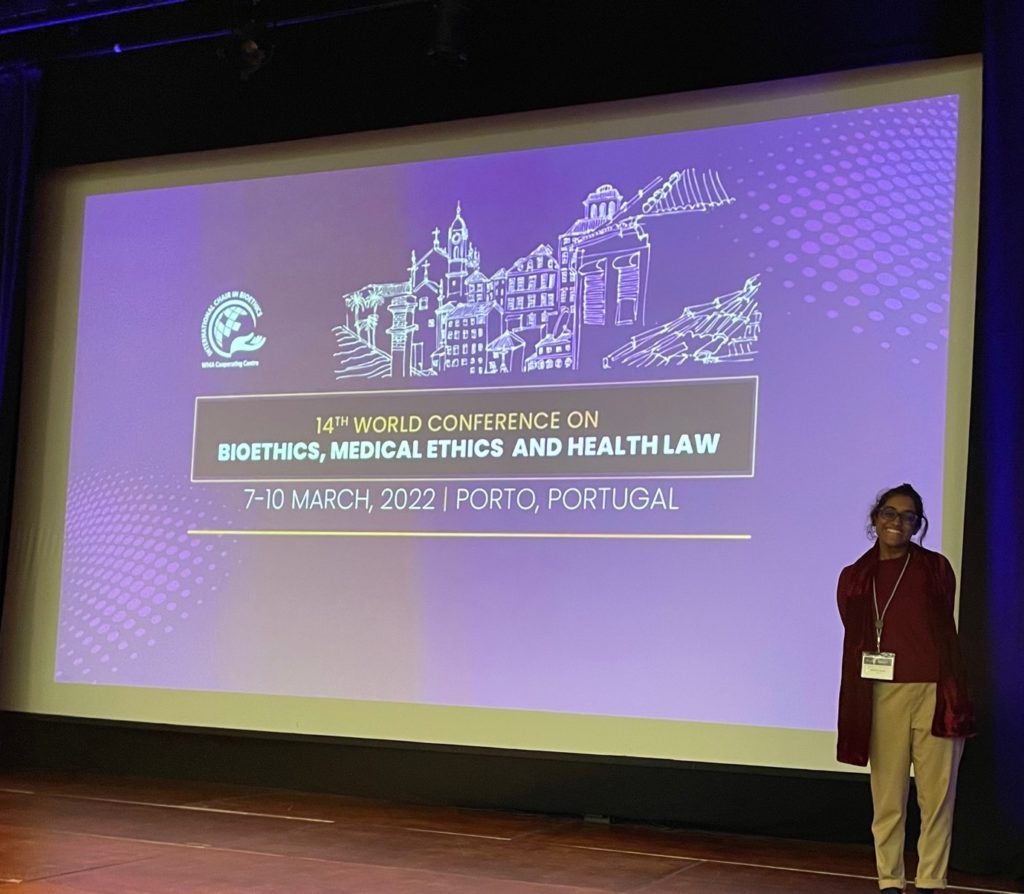Conference Report: 14th World Conference on Bioethics, Medical Ethics and Health Law 2022
Rebecca Jeyaraj, LLM student (Masters in Medical Ethics & Law), University of Edinburgh, received an IME Conference Grant to attend this conference in Portugal and orally present, March 2022. Rebecca's presentation was on moral injury in healthcare - read her report below and see how awardees benefit from our grants.
Report on the 14th World Conference on Bioethics, Medical Ethics and Health Law
By Rebecca Jeyaraj
I am extremely grateful to the Institute of Medical Ethics for supporting my attendance at the 14th World Conference of Bioethics, Medical Ethics and Health Law. It was a phenomenal experience which allowed me to step outside of my comfort zone by delivering an oral presentation to an international audience, and introduced me to new ideas and ways of thinking.
The conference took place from 7-10 March in Porto, Portugal and was attended by delegates from 76 different countries. It was a privilege to meet people from so many different fields, including but not limited to philosophy, law, bioethics, social care, health care, and the biomedical sciences.
Each day of the conference included several parallel sessions on themes such as “Death and Dying”, “Reproduction” and “Defensive Medicine”. The presentations were fascinating, covering topics which were timely and challenging. I found the discussions after each presentation to be especially riveting, and was heartened see people agree and disagree in a way that earnest, kind and non-judgemental.
A talk on the importance of solidarity in improving collective knowledge of medications used during pregnancy (by Marieke Hollestelle) stimulated an engaging discussion on the potentially “forgotten principles” of bioethics. It was suggested that these “forgotten principles” – such as solidarity and altruism – are less commonly remembered and therefore less commonly used in constructing ethical arguments compared to the four classic principles of justice, autonomy, beneficence and non-maleficence. My own takeaway from this discussion was to actively consider these “forgotten principles” when forming my own ethical arguments as they may offer new insights or additional nuance to difficult scenarios.
Another presentation which offered many points for reflection (by Lars Ursin) focused on the question of whether it is possible to harm a person who is no longer alive. In this talk, we were invited to consider how both intuition and reason might influence our individual response to such a question. The discussion following this talk explored how the possibility of harming a non-living person might be relevant to situations where doctors have an ongoing duty of confidentiality after a patient’s death, which must be balanced against the rights and interests of living relatives who could benefit from knowing certain confidential information, particularly genetic information. It was rewarding to see how a structured approach to what might initially seem to be an academic question (“Do non-living persons have interests?”) can shed light on and offer valuable guidance for real-world clinical scenarios.
My own presentation was about moral injury in healthcare. The presentation considered the difference between moral injury and burnout, explored existing data from surveys looking into factors contributing to moral injury, and discussed system-level changes as well as the evolving evidence base for interventions that might address moral injury. I found the question-and-answer session following the talk very enjoyable, with a variety of thought-provoking questions from the audience. For instance, one question focused on practical ways to improve workforce retention. Another question, making links to earlier talks on conscientious objection, explored how moral injury might apply in instances where there are limits to a professional’s right to conscientious objection. The enthusiasm from the audience and other speakers saw the question-and-answer format progress naturally into an inclusive room-wide discussion on issues ranging from professional autonomy to power and vulnerability in the doctor-patient relationship. I was delighted that the sharing and learning continued after the session ended and over a lovely dinner of Porto’s famous francesinha sandwich!
I concluded my presentation at the conference with a moving quote from Avedis Donabedian, who is considered a pioneer of quality assurance in health care. The quote goes, “It is the ethical dimension of individuals that is essential to a [health] system’s success.” Being an active participant in this conference, attending plenary talks on how international codes of practice have been and are being developed, listening to the stories and experiences of fellow delegates – all of this has allowed me to cultivate my own ethical dimension, and inspired me to continue to do so in order to provide the best possible care for my patients. Once again, I am incredibly thankful to the Institute of Medical Ethics for helping me to find my voice in the field of medical ethics and for nurturing what I know will be a lifelong love for the subject.

